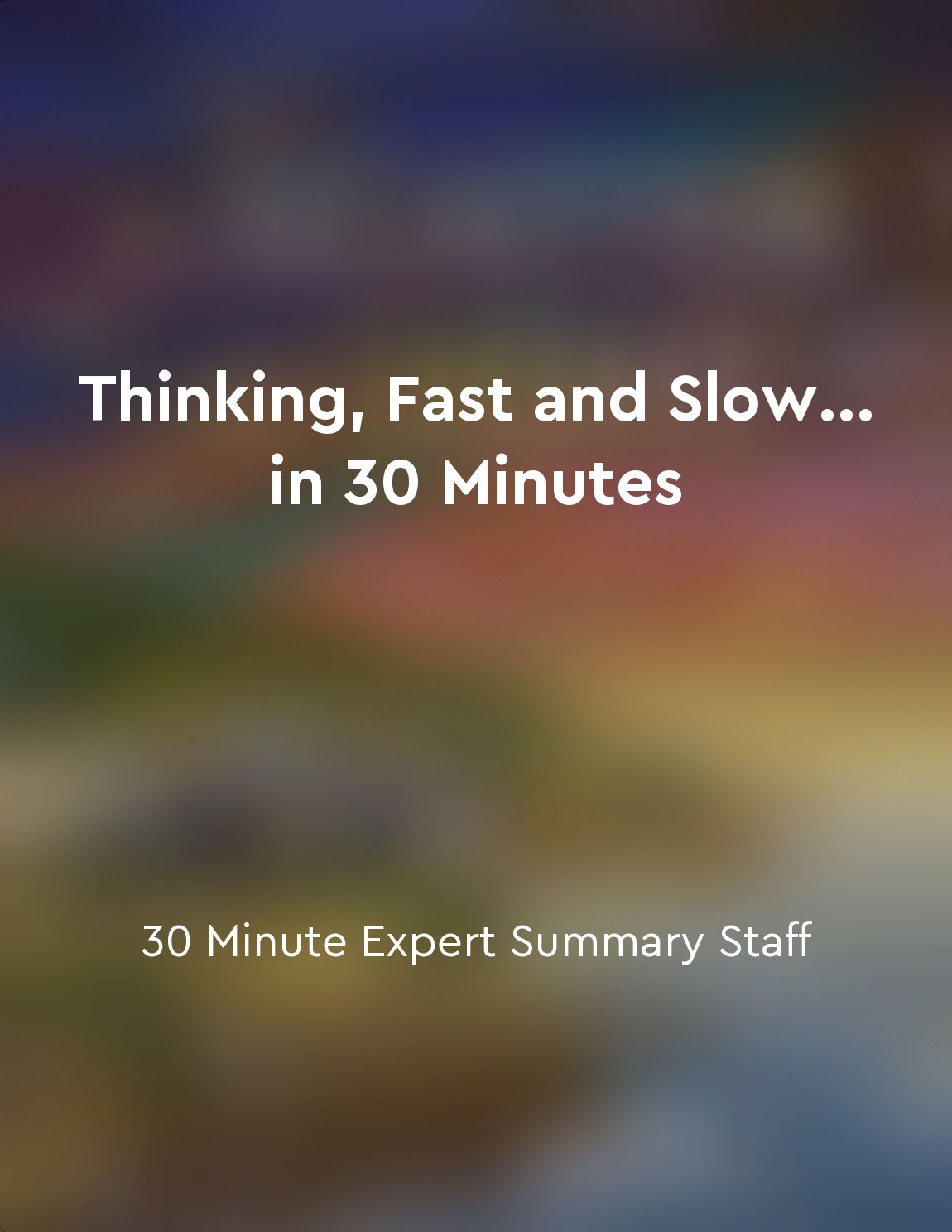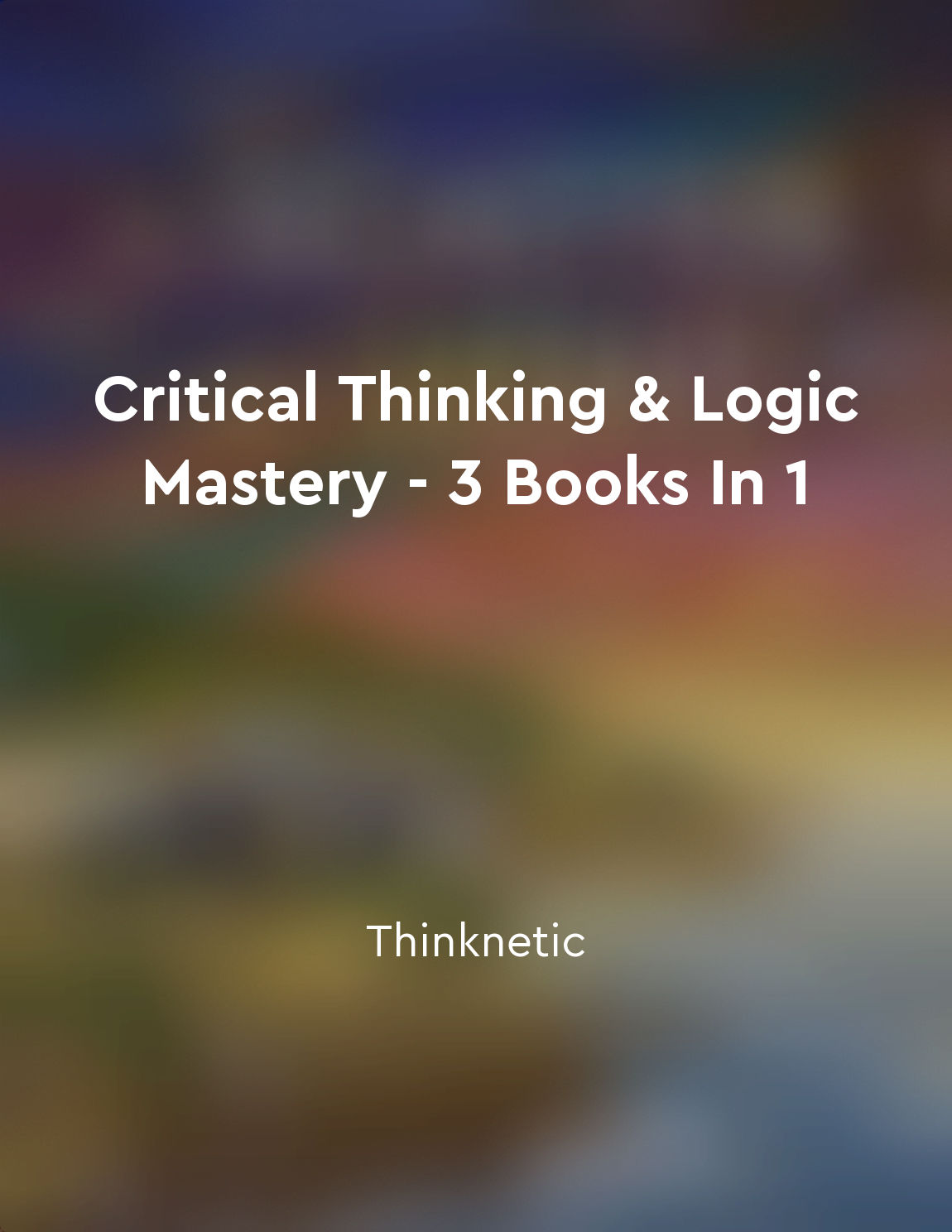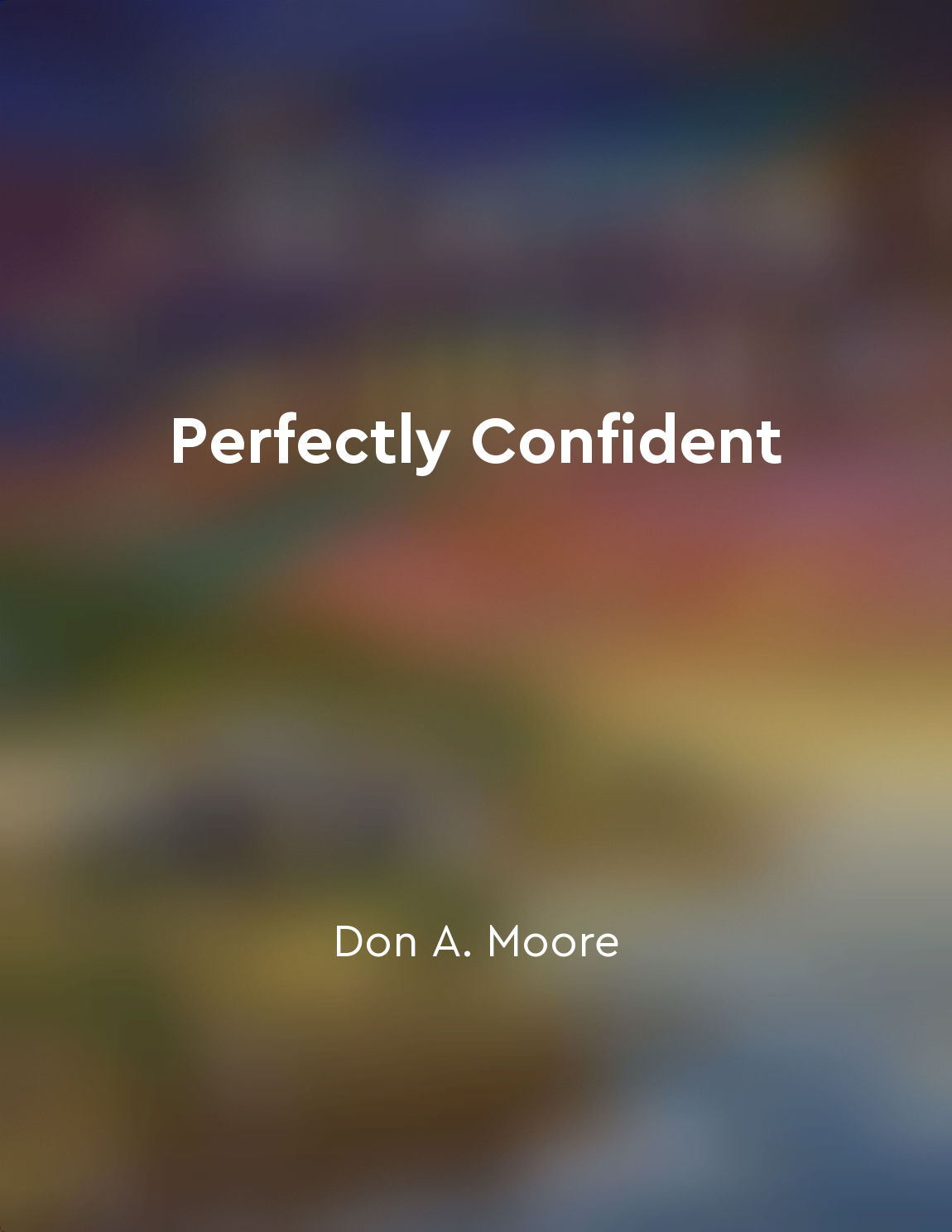Acknowledge uncertainty and limitations from "summary" of Perfectly Confident by Don A. Moore
Acknowledging uncertainty and limitations is a crucial aspect of decision-making that many people tend to overlook. We often have a tendency to believe that we possess all the information we need to make the best choice, but the truth is that there are always unknowns and constraints that we should take into account. When we fail to acknowledge uncertainty and limitations, we run the risk of making decisions based on incomplete or inaccurate information. This can lead to poor outcomes and missed opportunities. By recognizing that we don't have all the answers and that there are factors beyond our control, we can approach decision-making with a more realistic and humble mindset. One common misconception is that being confident means being certain about our choices. However, true confidence comes from being aware of our limitations and uncertainties. It involves being comfortable with the idea that we may not have all the information we need, and that our decisions are not guaranteed to be perfect. Acknowledging uncertainty and limitations also allows us to be more open to feedback and new information. When we are willing to admit that we don't know everything, we become more receptive to learning and adapting our decisions based on new insights. This flexibility can be a valuable asset in an ever-changing and unpredictable world. Furthermore, recognizing our limitations can help us avoid overconfidence bias, which is a common cognitive bias that leads us to overestimate our abilities and knowledge. By being honest about what we don't know, we can guard against the dangers of overconfidence and make more informed and rational decisions.- Acknowledging uncertainty and limitations is a key component of making sound decisions. It involves recognizing that we don't have all the answers, being open to new information, and guarding against overconfidence bias. By embracing uncertainty and limitations, we can approach decision-making with a more realistic and humble attitude, ultimately leading to better outcomes.
Similar Posts
Honor your emotions throughout the transition process
As you navigate the twists and turns of life transitions, it is crucial to acknowledge and respect your emotions along the way....
Build a strong network of mentors and peers
Establishing a strong network of mentors and peers is crucial for your personal and professional growth. This network can provi...
Invest in marketing and PR
When you're starting a business, it's easy to focus all of your attention on the product or service you're offering. After all,...
Representativeness heuristic causes investors to rely on stereotypes rather than data
The representativeness heuristic is a mental shortcut that allows people to make decisions quickly based on stereotypes rather ...

Loss aversion impacts choices
Loss aversion is a concept that plays a significant role in the choices we make. This idea suggests that people tend to strongl...
Practice active thinking
The idea of active thinking is about engaging with your thoughts in a purposeful and deliberate way. It involves being aware of...
Embrace uncertainty with courage and grace
The wise man is one who understands the nature of life itself. He knows that uncertainty is the only certainty in this world. I...
Stop procrastinating
The pattern of your behavior is leading you nowhere, it's time to face that fact. You've got these grand ideas of what you want...
Conforming to societal expectations limits personal growth
In the pursuit of personal growth, one must navigate the complex interplay between societal expectations and individual identit...

Critical thinking is a lifelong skill that can be honed through practice
The ability to think critically is not something that is innate; rather, it is a skill that can be developed over time through ...


